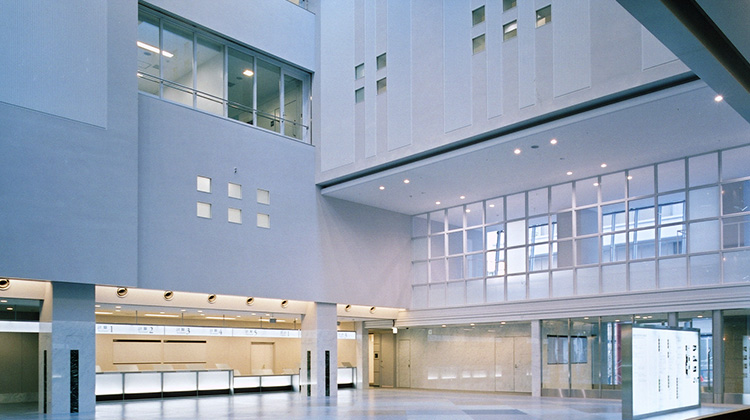概要
外来化学療法室は、外来棟2階の22番にあります。専任常勤医師1名、専任常勤看護師2名(がん化学療法看護認定看護師1名を含む)、看護師12名、常勤薬剤師2名で構成され、小児科を除く全診療科のがん化学療法を行っています。近年、外来での化学療法件数は増加傾向にあり、当院でも2020年度以降、年間総治療件数は約15,000件となっています。2018年度には、治療チェアが36席から45席に増席され、より多くの患者さんを受け入れる体制となりました。
当院は、地域がん診療拠点病院に指定されており、化学療法を行う患者さんの継続的な支援や、多職種によるチーム医療連携、薬剤師による薬剤指導を活発に行っています。外来化学療法室には、がん化学療法看護認定看護師が在籍しており、抗がん薬投与に伴う副作用の管理や、生活の工夫などについて積極的に情報提供、支援を行っております。
がん薬物療法とはなんですか?
-
がん薬物療法とは、がんに対する全身治療です。抗がん剤、分子標的薬、ホルモン剤、免疫チェックポイント阻害薬の4種類があります。
-
入院でも外来でも行われますが、最近では副作用の寄り少ない薬が増えてきたこともあり、外来で治療することが増えています。
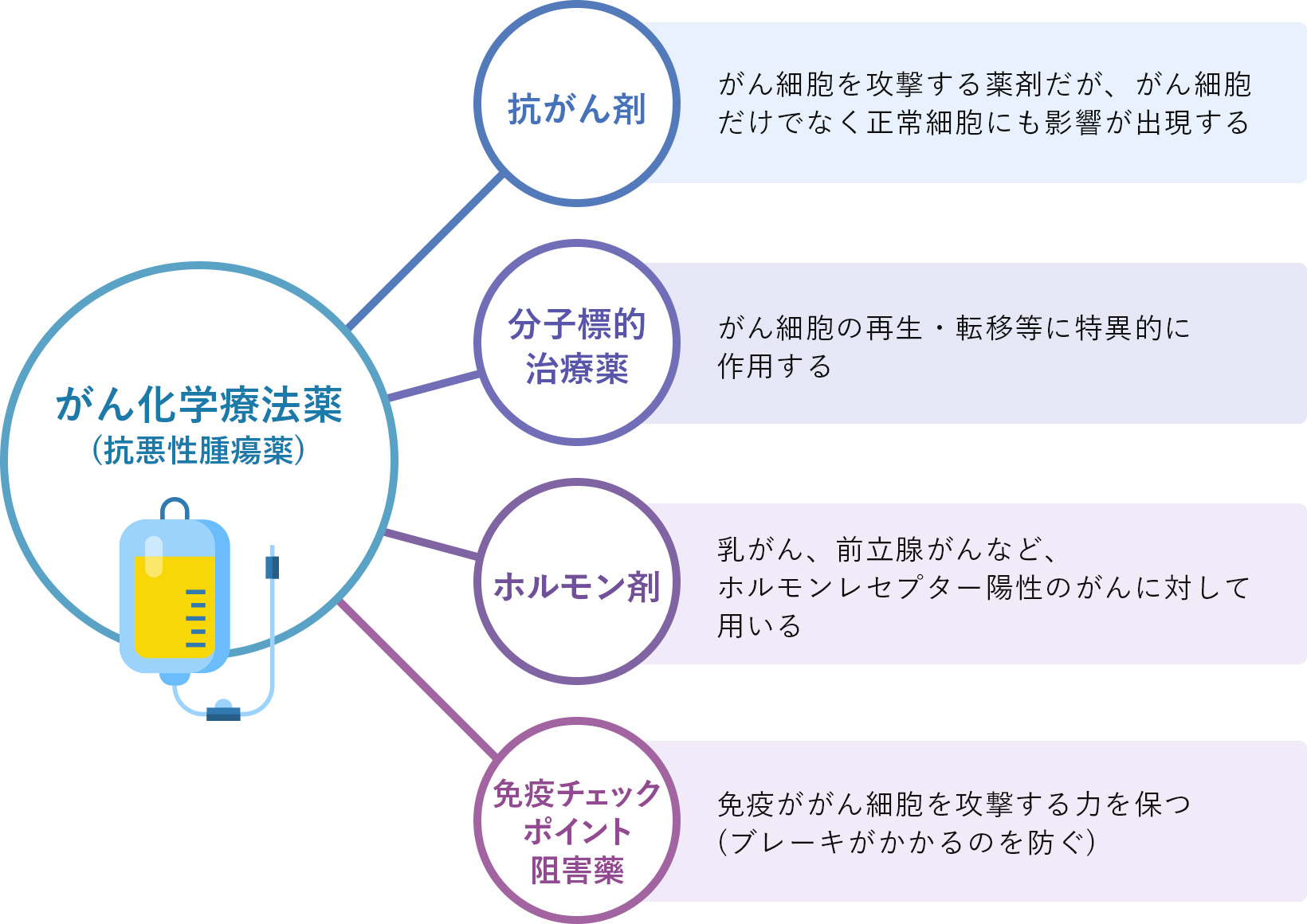
外来で化学療法を受けられるのはどのような人ですか?
-
当院では、他の病院に先駆けて、2002年より外来での化学療法をはじめています。専任の医師、看護師、薬剤師たちがチームを組み、各診療科の主治医と密接に連絡を取りながら、安全な化学療法を追求しています。
-
外来治療ができる条件としては、1.比較的副作用が軽い薬(の組み合わせ)であること 2.患者さんの全身状態が良く、問題なく通院できること 3.主治医の許可があること などの用件が必要となります。詳しくは主治医の先生とご相談ください。
-
主な疾患:(悪性腫瘍)乳がん、大腸がん、すい臓がん、胃がん、胆道がん、造血器悪性疾患、肺がん、骨軟部肉腫、腎臓泌尿器科系腫瘍、婦人科系腫瘍、脳腫瘍、頭頸部癌,皮膚腫瘍、食道がん、原発不明癌 (非悪性腫瘍)クローン病,潰瘍性大腸炎 など
外来化学療法がある日の診察~治療開始までの流れ
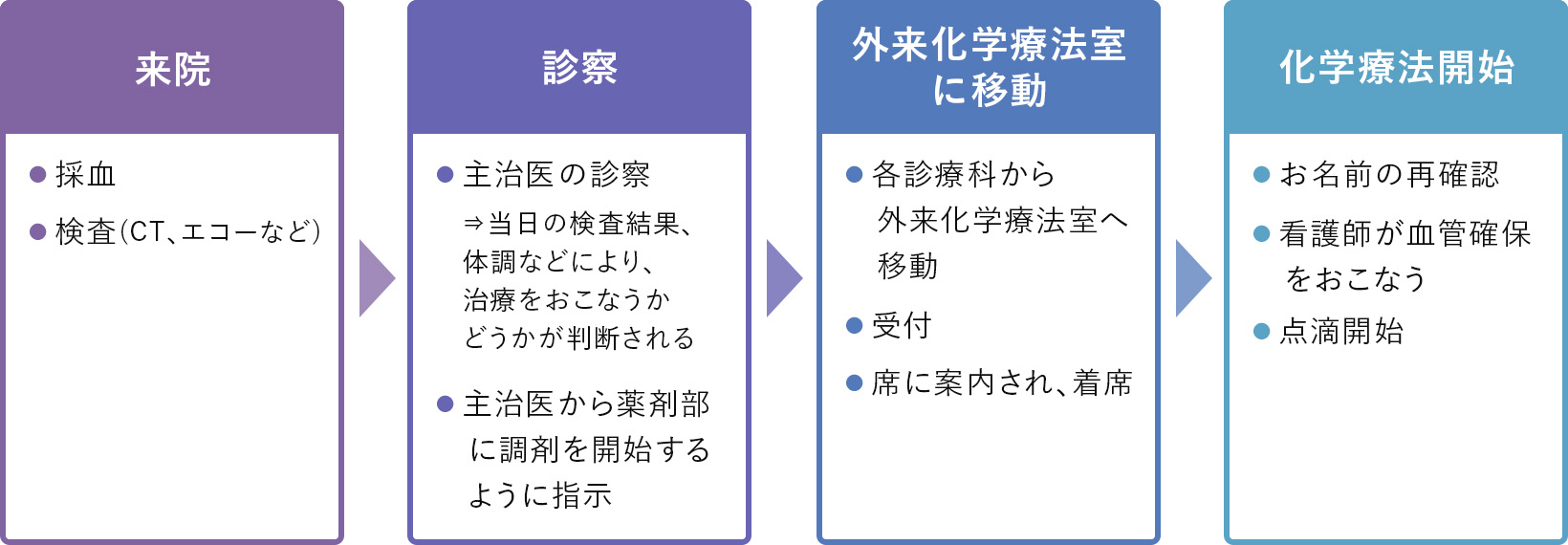
化学療法室の様子
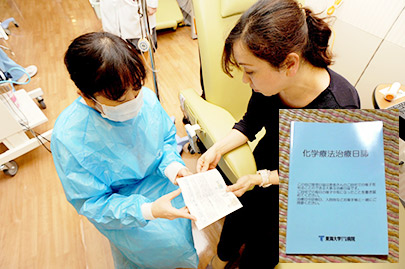
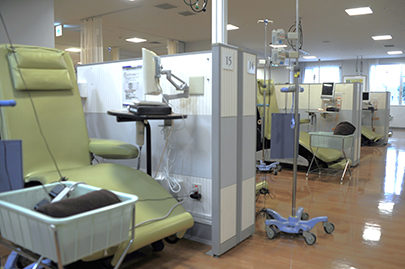
患者さん・ご家族のみなさまへ
「化学療法をするのが怖い」「入院して治療をしなくて大丈夫?」など、多くの不安があると思います.化学療法は、その後の人生や生活を充実して過ごすための重要な選択であり、治療です。化学療法室のスタッフは、みなさま方の治療をサポートし、いろいろな場面で支えて行きたいと考えています。
-
どちらの治療にしますかと言われてこちらを選んだけど、大丈夫?
-
治療が思ったよりも辛い。なんとかならないだろうか?
-
治療が終わった後の生活はどうすればいいの?
-
治療の効果があまり出ていないようで、辛い。
-
家族が自分の介護で疲れているようだ。どうすればいいの?
など、ご不安なこと、心配なことがあれば、スタッフにお声がけください。
ご一緒に一番良い方法を考えていきたいと思います。


